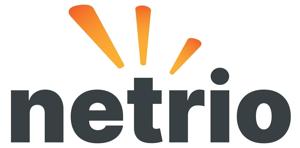Gemini มาถึง Google TV: AI บุกห้องนั่งเล่นเมื่อวงการเทคโนโลยีบรรจบกันบนความบันเทิง ธุรกิจ และคริปโต
Author: Tech Desk

การปฏิวัติที่เงียบสงบในปัญญาประดิษฐ์ไม่ได้จำกัดอยู่แค่ในศูนย์ข้อมูลหรืออุปกรณ์เคลื่อนที่อีกต่อไป มันได้เคลื่อนเข้าสู่ห้องนั่งเล่น สถานที่ทำงาน และแม้กระทั่งโลกการลงทุนในคริปโต จุดศูนย์กลางของการเปลี่ยนแปลงนี้ในปลายปี 2025 คือ Gemini ซึ่งเป็น AI แถวหน้าของ Google ที่ตอนนี้ถูกรวมเข้ากับ Google TV ผ่านความร่วมมือกับ TCL รุ่น QM9K แนวทางนี้สอดคล้อยตามรูปแบบอุตสาหกรรมที่ใหญ่ขึ้น: ผู้เล่นเทคโนโลยีรายใหญ่กำลังฝัง AI สนทนาไว้ในอุปกรณ์ประจำวัน ทำให้หน้าจอที่เงียบๆ กลายเป็นศูนย์กลางโต้ตอบได้อย่างมีชีวิตชีวา ในเชิงปฏิบัติ Gemini บน Google TV สัญญาว่าจะแทนที่ Google Assistant รุ่นเก่าด้วยบทสนทนาที่เป็นธรรมชาติมากกว่า ช่วยให้ผู้ชมค้นหาเนื้อหา ถามว่าอะไรควรดูต่อ หรือขอคำอธิบายเรื่องวิทยาศาสตร์และวัฒนธรรมโดยไม่ต้องลุกจากโซฟา การครอบคลุมโดย Techaeris PCWorld และ 9to5Google มองเห็นการเปิดตัวนี้ว่าเป็นมากกว่าการอัปเดตฟีเจอร์ เพราะเป็นการจินตนาการใหม่เชิงกลยุทธ์เกี่ยวกับวิธีที่ครอบครัวโต้ตอบกับเนื้อหา การค้นหา และการเรียนรู้
แนวทางของ Gemini บน Google TVไม่ใช่กลอุบายเดี่ยวๆ มันสร้างบนกลยุทธ์ของ Google ที่จับคู่ AI สนทนากับฮาร์ดแวร์ในบ้าน การค้นหา และความรู้ในบริบทต่างๆ โดยการแทนที่ Google Assistant รุ่นเก่าในบางการกำหนดค่า Google TV Gemini มุ่งหวังที่จะมอบการตอบสนองที่มีบริบทมากขึ้นและลึกซึ้งยิ่งขึ้น รวมถึงงานหลายขั้นตอน เช่นค้นหาโปรแกรมที่สอดคล้อยกับรสนิยมของพันธมิตร แล้วจึงจัดการกับคำถามติดตามผลอย่างราบรื่น กระบวนการเปิดตัวนี้ไปไกลกว่าคำสั่งพื้นฐาน เพราะ AI ถูกออกแบบให้ช่วยในการวางแผน การศึกษา และคำถามที่ใช้งานจริง ตั้งแต่การหาผลงานละครที่มี “ตัวเลือกการดู” ไปจนถึงการอธิบายแนวคิดทางวิทยาศาสตร์ การรวม Google TV ถูกนำเสนอเป็นส่วนหนึ่งของคลื่นการใช้งาน AI ที่บ้าน โดย Google ได้กระตุ้นการเปิดเผยซอฟต์แวร์และฮาร์ดแวร์ที่รองรับ Gemini เพิ่มเติมที่เชื่อมโยงกับระบบนิเวศที่ขยายตัว
ปรากฏการณ์ AI ในห้องนั่งเล่นไม่จำกัดอยู่แค่บริษัทเดียวหรืออุปกรณ์เดียว จอ TCL QM9K ที่มีชื่อเสียงในด้านประสิทธิภาพ mini-LED มอบพื้นที่ที่เหมาะสมให้กับความสามารถในการสนทนาของ Gemini ในขณะที่สแต็กซอฟต์แวร์ของ Google มุ่งหมายที่จะพาผู้ใช้ให้คงอยู่ในระบบนิเวศของตนในฐานะผู้ช่วยหลักสำหรับความบันเทิง ข่าวสาร และการศึกษา เป้าหมายชัดเจนคือทำให้การใช้งาน AI เป็นธรรมชาติเหมือนเป็นผู้ช่วยที่ไว้ใจได้มากกว่าเป็นอุปกรณ์ เพื่อความเป็นส่วนตัวและการกำกับดูแลข้อมูลที่ดีขึ้น เพราะการสนทนาที่ละเอียดมากขึ้นมักต้องการบริบทมากขึ้นและประวัติการโต้ตอบที่ยาวนาน ผู้ผลิตและแพลตฟอร์มต้องหาจุดสมดุลระหว่างการประมวลผลบนอุปกรณ์กับการประมวลผลผ่านคลาวด์ เพื่อให้ตอบสนองต่อความต้องการด้านความเร็ว พร้อมทั้งให้ผู้ใช้ควบคุมข้อมูลที่ถูกใช้งานและจัดเก็บได้อย่างโปร่งใส

อินเทอร์เฟซ Google TV ที่ขับเคลื่อนด้วย Gemini ช่วยให้การสนทนาด้วยภาษาธรรมชาติในห้องนั่งเล่นเป็นไปได้
โลกเทคโนโลยีโดยรวมกำลังจับตาอย่างใกล้ชิดเพราะ Gemini บน Google TV ตั้งอยู่ที่จุดตัดของอิเล็กทรอนิกส์ผู้บริโภค งานวิจัย AI และกลยุทธ์แพลตฟอร์ม ในตลาดที่กว้างขึ้น Fire TV ของ Amazon มีฟีเจอร์ค้นหาและคำแนะนำที่ขับเคลื่อนด้วย AI แล้ว แสดงถึงความพยายามของอุตสาหกรรมทั่วไปในการเพิ่มประสิทธิภาพการค้นหาเนื้อหาและการมีส่วนร่วมของผู้ใช้ผ่านอุปกรณ์สตรีมมิ่ง การเปิดตัว Gemini บ่งบอกถึงความทะเยอทะยานของ Google ที่จะขยาย AI สนทนานอกเหนือจากสมาร์ทโฟนและแล็ปท็อปไปยังประสบการณ์ในห้องโถงภาพยนตร์และเวิร์กโหลดในชีวิตประจำวัน ขณะที่ Google และ TCL ผลักดันแพลตฟอร์มนี้ นักพัฒนาสามารถคาดหวังประสบการณ์ที่รองรับ Gemini เพิ่มขึ้น ตั้งแต่การค้นหาการศึกษาในหน้าจอขนาดใหญ่ ไปจนถึงบทเรียนเชิงโต้ตอบและคำอธิบายแบบเรียลไทม์ที่เปลี่ยนห้องนั่งเล่นให้กลายเป็นห้องเรียนแบบไม่เป็นทางการ ความท้าทายคือการรักษาความเป็นส่วนตัวในขณะที่ยังรองรับการโต้ตอบที่มีบริบทมากขึ้นในพื้นที่อยู่อาศัยที่พลุกพล่าน
การครอบคลุมล่าสุดของ BlockDAG ใน analyticsinsight.net เน้นย้ำอีกเขตแดนหนึ่งที่ AI พบกับประโยชน์จริงในการใช้งาน: โครงการคริปโตที่แสวงหาความถูกต้องตามกฎหมายและการใช้งานอย่างกว้างขวาง บทความกล่าวถึงราคาซื้อเข้า $0.0016 ของ BlockDAG และโต้แย้งว่าการใช้งานแพร่หลายและโครงสร้างพื้นฐานที่เข้มแข็งมีความสำคัญเท่ากับต้นทุนเข้าสู่ระบบที่ต่ำ ในตลาดที่เต็มไปด้วยการโฆษณาชวนเชื่อ ปัจจัยที่ทำให้ต่างออกไปคือว่าโครงการนั้นช่วยแก้ปัญหาที่จับต้องได้หรือไม่ และสามารถขยายผ่านความร่วมมือและการใช้งานจริงได้หรือไม่ บทความเปรียบ BlockDAG กับคู่แข่งเช่น Magacoin และ Nexchain AI โดยระบุว่าส่วนที่สำคัญกว่า คือคุณประโยชน์จริงและการสร้างระบบนิเวศมากกว่าประสิทธิภาพที่มีความเก็งกำไร แม้ว่าข่าวคริปโตมักดึงดูดนักลงทุนและผู้ที่ชื่นชอบ แต่ยังให้ภาพรวมว่าเครื่องมือและการวิเคราะห์ที่ช่วยด้วย AI กำลังมีอิทธิพลต่อการตัดสินใจในตลาดคริปโต ตั้งแต่การประเมินความเสี่ยงไปจนถึงการกำกับดูแลและการ onboarding ผู้ใช้งาน
ใน enterprise arena, AI-enabled service platforms are advancing quickly. Netrio’s recent release, describing NetrioNow’s next iteration as a means to reinvent managed services and redefine customer experience, illustrates how human-led, AI-powered capabilities are transforming the MSP sector. The unified platform promises to give managed service providers a way to orchestrate complex IT environments while directly involving customers in the service experience. By blending AI insights with human expertise, Netrio aims to shorten response times, improve proactive issue detection, and tailor service journeys to each client’s unique context. Firms deploying NetrioNow can expect smarter automation, more intuitive dashboards, and better alignment between IT operations and business outcomes. As AI becomes a standard feature of MSP platforms, the emphasis shifts from automation for its own sake to automation that enhances customer outcomes and business value.

NetrioNow ecosystem and its customer-centric AI-powered management interface.
ใน the software and project-management space, Planisware’s leadership position in Gartner’s Magic Quadrant for Adaptive Project Management & Reporting (APMR) for four years running underscores a broader trend: AI-enabled planning tools are becoming essential for complex, distributed work. The Gartner MQ recognizes Planisware for its ability to adapt to changing requirements, optimize scheduling, and support decision-making under uncertainty. The convergence of AI with enterprise planning promises to reduce costs, accelerate timelines, and improve governance across multi-stakeholder programs. Enterprises increasingly demand platforms that can ingest data from disparate sources, simulate scenarios, and present executives with actionable insights. In this climate, Planisware’s sustained leadership is less about hype and more about delivering practical capabilities that help organizations navigate the complexities of large-scale, adaptive projects.

Gemini on Google TV: the living room as a testing ground for enterprise-grade AI workflows.
The AI-enabled living room narrative also intersects with regulatory and security discussions around AI and data. For example, coverage around the governance of platforms that host influential AI services includes questions about who controls the underlying models, how data is used, and what transparency looks like for consumers. In parallel, coverage of the TikTok security arrangement—where Oracle is involved in securing the platform’s algorithm as part of a White House-backed deal—highlights the growing importance of safeguarding AI-driven tools as they scale. While the Breitbart report centers on policy dynamics and national interests, the underlying theme is consistent: emerging AI systems must be aligned with robust security, privacy protections, and accountability frameworks as they broaden from entertainment and consumer apps into critical infrastructure and data-rich environments.
Finally, the public discourse around Gemini’s Google TV rollout is complemented by ongoing reporting on where and when new AI features will appear on consumer devices. Reports such as 9to5Google’s coverage of Gemini’s launch on Google TV, while noting that many users will have to wait for broader availability, emphasize a staged approach: some devices will receive Gemini today, with wider adoption arriving later in the year. This pacing is common in large-scale platform rollouts, balancing supply chain realities, software compatibility, and regional regulatory considerations. For Google and TCL, the strategy is to generate sustained interest and to build a broad ecosystem around Gemini that includes education, entertainment, and practical assistance—an ecosystem that will continue to unfold across devices and geographies.
In sum, Gemini’s Google TV debut signals more than a feature addition. It marks a moment when AI-powered conversational capabilities migrate from pocket-sized devices into the heart of the home, while the tech industry simultaneously expands AI’s reach into enterprise software ecosystems, managed services, and even the crypto sector. The convergence of consumer AI, enterprise platforms, and crypto analytics points to a future in which intelligent assistants, adaptive planning tools, and data-driven decision support become standard operating procedures across multiple domains. As developers, manufacturers, and policymakers navigate issues of privacy, security, and user trust, the coming months will reveal how seamlessly AI can blend into daily routines while delivering real value across industries.